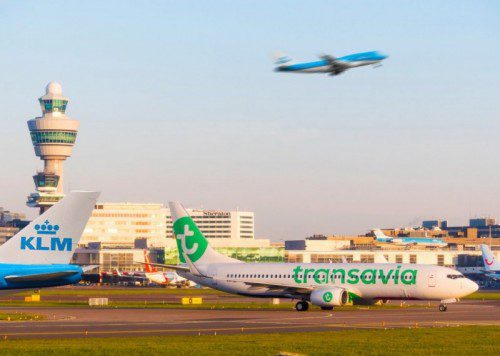 The KLM Group, in the first half of 2023, has reported an impressive upswing in their revenue, climbing to an astounding EUR 5.6 billion, a 20% leap over the same period in the preceding year, according to mid-year financial reports. Despite a fall in operating profit, this boost showcases the resilience of the aviation industry in the face of global challenges.
The KLM Group, in the first half of 2023, has reported an impressive upswing in their revenue, climbing to an astounding EUR 5.6 billion, a 20% leap over the same period in the preceding year, according to mid-year financial reports. Despite a fall in operating profit, this boost showcases the resilience of the aviation industry in the face of global challenges.
The operating profit for the Dutch flag carrier fell from EUR 266 million in 2022 to EUR 129 million this year. However, it’s crucial to note that the receipt of EUR 138 million significantly buoyed the 2022 figure in the form of NOW government aid during Q1.
KLM’s robust operations strategy, with a sharp focus on workforce and fleet availability, allowed them to operate 88% of their flights relative to the 2019 figure. Even amid an uncertain global landscape, this sturdy operational standard not only facilitated consistent services but also reflected positively in customer satisfaction.
The airline has sustained a Net Promotor Score (NPS) of 42 for the year’s first half. This was achieved despite the inevitable delays and cancellations induced by incidents such as Storm Poly and a temporary dysfunction in the baggage handling system at the Amsterdam Airport Schiphol.
KLM’s CEO, Marjan Rintel, emphasized the company’s commitment to minimal customer disruption from such incidents. She further acknowledged the rise in ticket costs but added that demand for travel remains robust, so much so that it exceeded KLM’s ability to operate flights. This discrepancy was ascribed to more extended hangar stays for maintenance due to worldwide issues affecting component supply.
She acknowledged that while KLM continues to face high fuel, labour, and material costs and elevated airport fees, they strive towards optimal cost management. Rintel stressed that this was the key to ensuring their operations remain clean, quiet, and efficient, thereby enabling better investment in customer service.
The reports also noted the decline in cargo revenue. Despite a drop in volume and average prices, it still positively contributed to the overall figures. At the same time, the Engineering & Maintenance department was affected by global component supply issues, though the recovery trend from the previous year continued.
Transavia, the budget airline subsidiary of KLM, also faced challenges with the delayed deployment of leased aircraft and several incidents that resulted in fewer flights than planned. This led to last-minute cancellations, leaving customers disappointed. However, the company managed to rebook most passengers onto other flights, and Transavia still saw a 15% increase in revenue.
In the second quarter of 2023, the KLM Group generated EUR 3.1 billion in revenue, up from EUR 2.8 billion in the same period last year, and earned an operating profit of EUR 257 million. This quarter also saw the KLM arrange a commercial credit facility with 14 international banks, marking the end of government support.
Erik Swelheim, CFO of KLM, shared that the improved results in Q2 compensated for Q1 losses. He noted the continued pressure on results due to lower capacity at KLM, attributable to fleet and workforce availability. Swelheim emphasized the need for a more rigorous focus on cost management to maintain a competitive edge.
With this mid-year report, KLM Group continues to showcase its resilience and ability to navigate the complex challenges of the aviation industry.
Written by: My Thanh Pham















